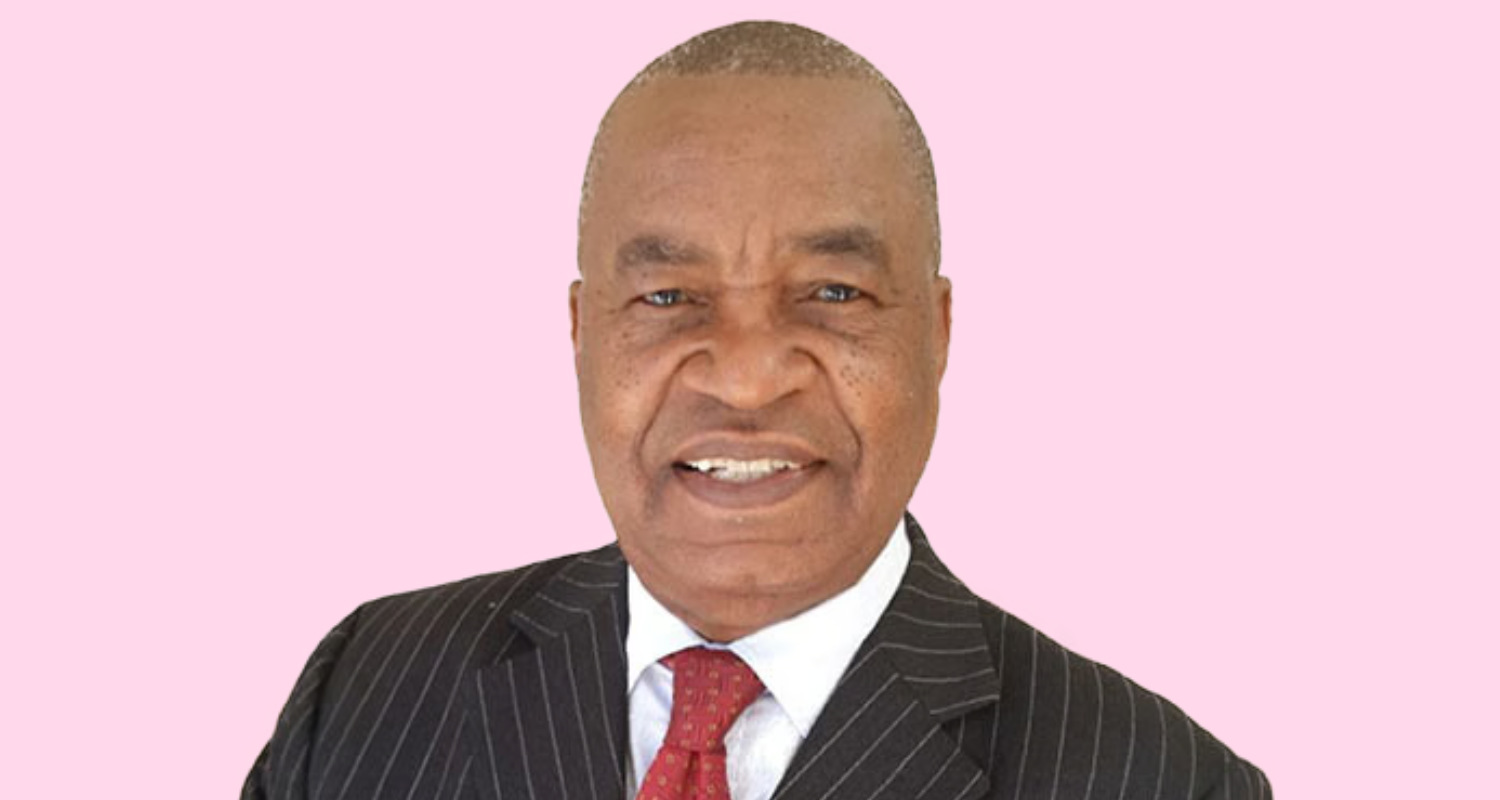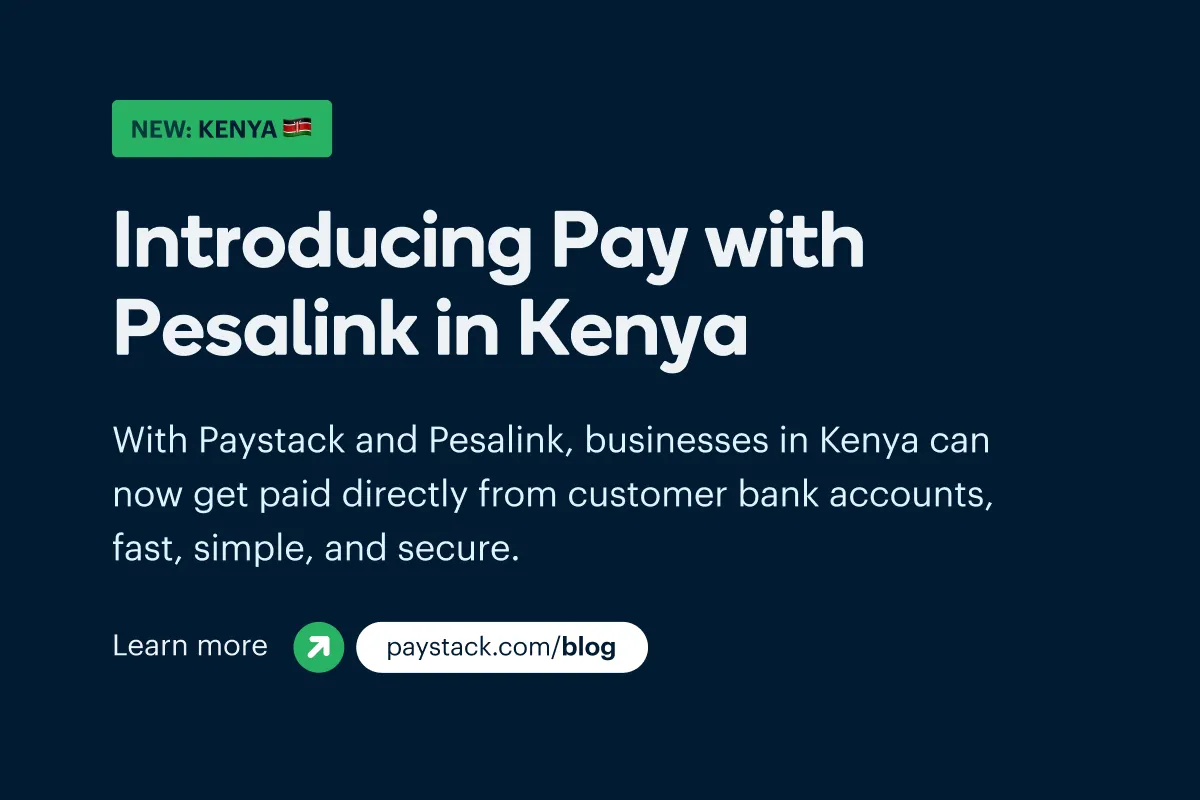- 👨🏿🚀TC Daily
- Posts
- Revolut hires South African chairman
Revolut hires South African chairman
Special Number: Eight Nigerian banks see 14% growth in e-payments.


Good morning. ☀️
If you've got a great startup story to tell, virality shouldn't make you wait. Come tell your story on TechCabal; hundreds of startups are applying to feature on My Startup in 60 Seconds by TechCabal. What are you waiting for?
Last week, we featured Intense, a digital agency that helps businesses make more money and keep customers. It could be your turn next; simply apply to be selected. Please note that this is a paid opportunity.
Fintech
Revolut taps a heavyweight ahead of South Africa entry

Revolut, the global fintech giant, is suiting up for South Africa, and it just hired a heavyweight to lead the charge. The digital bank has appointed Gaby Magomola as chairman of its South African arm.
Who’s the new guy? If the name rings a loud bell (or not), it’s because Magomola isn’t new to pressure or paperwork. He’s the former CEO of African Bank and a veteran of Citibank, Barclays, First National Bank (FNB), and the Development Bank of Southern Africa. Add in a four-decade career in finance, governance, and economic transformation, and you see why Revolut wants him in the room.
Magomola takes over from the interim leadership, guiding Revolut SA through its early-phase setup, stepping in just as the company files its “Section 12” application with the Prudential Authority. That filing is the first big step toward securing a full South African banking licence in a market where competition is getting tougher.
State of play: Revolut’s South African strategy is still wrapped in secrecy, but with Magomola’s regulatory fluency and four decades of banking muscle, this appointment screams “I’m going to take South Africa by storm.”
Powering businesses across Africa to pay and get paid in local currencies.

With Fincra, businesses, startups, global enterprises and platforms can easily send and receive payments in multiple African currencies, empowering trade, and growth across the continent. Create your account in 3 minutes.
Cryptocurrency
Discovery Bank, in partnership with Luno, has turned crypto into a banking feature

Discovery Bank, a South African digital bank, is officially opening the door to cryptocurrency. The bank has introduced a new feature that enables customers to trade over 50 cryptocurrencies directly within its app. The move comes through a fresh partnership with Luno, a cryptocurrency exchange, which will power the backend of the trading experience.
Why now? Two things: crypto is now legal in South Africa, and is no longer niche; more South Africans are using crypto, thanks to crypto-based infrastructure—crypto payment gateways, cards, and ATMs—becoming available in the country. South Africans are now spending over $112,000 monthly using cryptocurrency to pay for everyday conveniences, and the regulatory environment has matured enough for banks to stop watching from the sidelines.
It wasn’t always the case: Between 2019 and 2020, banks aggressively de-risked from crypto because regulators hadn’t yet drawn clear lines. It took years of policy papers, working groups, and warnings before the breakthrough moment in 2023, when the Financial Sector Conduct Authority (FSCA) began accepting applications for crypto-asset service provider (CASP) licences.
Something… familiar? South Africa’s First National Bank (FNB) previously provided direct banking services to crypto trading platforms before shutting down crypto-linked bank accounts in 2019 after considering its risk appetite regarding virtual currencies. However, its e-wallet still allowed users to fund their accounts on crypto exchanges like Bybit and Binance.
What it means: For Discovery Bank, partnering with Luno is a bet on convenience and investor demand as clients get seamless trading, real-time balances, and regulated rails. If Discovery is the first domino, the rest of South Africa’s banking sector may not stay still for long. Now that regulation is clear and customer demand is undeniable, other banks could start entering into partnerships to plug crypto into their service offerings.
Enjoy smooth payments while you're home this Detty December

Coming home for Detty December? Enjoy smooth payments every day with your Paga US account. Send money to any bank instantly. Don’t miss out, get started now.
Economy
Nigeria’s economic outlook gets revised to “positive”

On November 14, Nigeria earned a small but meaningful vote of confidence from S&P Global Ratings, a top credit ratings agency, which revised the country’s outlook to “positive” while affirming its B- score. It is not a rating upgrade, but it signals that if current reforms continue to take hold, the door to an upgrade is finally opening.
The most recent full review of Nigeria’s credit rating by S&P Global was on May 16, when it affirmed Nigeria’s rating at “B-/B” with a “stable” outlook. For investors who track Nigeria with the same obsession people track their favourite playlists, this is the kind of shift that hints the algorithm is starting to swing the country’s way.
S&P’s reasoning is straightforward. Since mid-2023, Nigeria has pushed through a series of consequential reforms: a market-driven exchange rate, the removal of fuel subsidies, tighter fiscal discipline, and a more assertive revenue drive. Combine those with recovering oil production and the ramp-up of the Dangote refinery, and the overall picture is one of steadier footing.
State of play: The credit ratings agency now expects growth to average about 3.7% from 2025 to 2028, supported by stronger external balances and improving investor sentiment. The build-up in reserves, estimated at $44 billion, helped too, as did the clearing of FX backlogs and renewed inflows from the diaspora.
Between the lines: None of this erases Nigeria’s structural challenges. Revenue remains thin, debt service still absorbs a large share of collections and inflation, although easing, will stay elevated for a while. Portfolio flows are another risk because they can reverse quickly if global conditions sour. Yet, a positive outlook alters the mood and tells lenders that Nigeria’s reform story is gaining credibility.
Zoom out: The regional picture makes Nigeria’s shift stand out even more. S&P downgraded Senegal after the discovery of large hidden debts pushed its financing needs toward crisis levels. Côte d’Ivoire, by contrast, held steady with solid debt-management credentials, while Rwanda maintained stability despite rising investment pressures.
In a week of mixed signals across the continent, Nigeria is one of the few markets where the rhythm seems to be moving in the right direction.
Paystack introduces Pay with Pesalink in Kenya!

With Pesalink and Paystack, businesses in Kenya can now get paid directly from customer bank accounts. Learn more here 👉
Streaming
Spotify raises prices—again

If you love your Afrobeats way too much, you might have to start paying a little extra for it. Spotify, the market leader in digital music streaming, has once again nudged up subscription prices in South Africa and Nigeria.
After raising prices in September, the company returned in November with another bump. Nigerian users on the Individual Premium plan will now pay ₦1,600 ($1.11), up from ₦1,300 ($0.9), while South Africans also saw slight increases, with the Individual plan holding at R69.99 ($4) after jumping from R64.99 ($3.8) earlier this year. Spotify has also added a few new features in South Africa, including higher-quality audio options and new subscription tiers.
Why the adjustments? In 2024, Spotify became profitable for the first time, pulling in €1.14 billion ($1.7 billion) in net income after years of red ink. Africa is not yet a dominant share of its global revenues, but its importance is growing. The platform’s payouts to Nigerian and South African artists crossed $59 million last year, a signal that the region’s listening power matters. From Spotify’s perspective, raising average revenue per user in fast-growing markets makes sense.
Between the lines: For users, though, the reaction will likely be mild for now. A Nigerian subscriber who was fine with ₦1,300 ($0.9) will probably still manage ₦1,600 ($1.11), especially given that the added features, while modest, do improve the service slightly. But if these hikes become a yearly ritual, the calculus could shift.
Piracy, despite being illegal, remains an ever-present workaround for users with diminishing disposable income, and persistent price increases risk pushing frustrated listeners back toward unlicenced downloads. That would be bad news for everyone in the streaming economy, from artists to platforms, because piracy drains revenue and squeezes already thin margins.
Competition adds another twist. With this latest hike, Spotify is now more expensive in Nigeria than Apple Music and YouTube Music, both still priced at ₦1,300 ($0.90). In South Africa, YouTube Music is the cheapest option on the shelf.
Yet, the price hikes aren't peculiar to Spotify; in May, Apple Music also raised prices, suggesting a broader trend. It begs the question: is streaming simply getting more expensive, or are the costs of running global platforms rising so quickly that higher prices are inevitable?
AI in a Nutshell gives you weekly AI knowledge and insights

Want to stay close to AI but hate long reads? AI in a Nutshell gives you weekly AI knowledge, news, tools, and insights - short, smart, and fun. Perfect for curious (but lazy) readers who still want to stay ahead. Subscribe here.
SPECIAL NUMBER
$356.95 million
Eight of Nigeria’s biggest banks recorded a 14.41% growth in e-payments income in the first nine months of 2025 as payments through web and mobile channels continue to rise to record highs.
Higher transfer volumes have driven the increase, and reliance on mobile apps and internet transfers has become a steady income source for traditional banks, who continue to ramp up their tech speed to match growing demand.
Learn more about businesses and their many money-making schemes in this week’s Follow The Money column. Every Monday, TechCabal unpacks the most important earnings, business models, and growth strategies shaping the future of Africa’s tech ecosystem.
CRYPTO TRACKER
The World Wide Web3
Source:

Coin Name | Current Value | Day | Month |
|---|---|---|---|
| $94,967 | – 1.01% | – 10.97% | |
| $3,178 | - 0.86% | - 17.53% | |
| $2.24 | - 0.5% | - 3.38% | |
| $139.94 | - 1.09% | - 24.93% |
* Data as of 06.30 AM WAT, November 17, 2025.
job Openings
- Busha — Business Development Manager, Reconciliation and Settlement Analyst — Hybrid (Lagos, Nigeria)
- Trust Wallet — Data Scientist, iOS Engineer (Web3), Growth and Performance Marketing Analyst — Remote
- Paystack — Performance Marketing Specialist — Remote (Lagos, Nigeria)
- Amazon Kuiper — Senior Tech Business Development Manager, Kuiper Site Acquisition, Africa & Middle East — South Africa
- Flutterwave — Treasurer, Africa — Lagos, Nigeria

Written by: Opeyemi Kareem and Emmanuel Nwosu
Edited by: Ganiu Oloruntade
Want more of TechCabal?
Sign up for our insightful newsletters on the business and economy of tech in Africa.
- The Next Wave: futuristic analysis of the business of tech in Africa.
- TC Scoops: breaking news from TechCabal
- Francophone Weekly by TechCabal: insider insights and analysis of Francophone’s tech ecosystem
P:S If you’re often missing TC Daily in your inbox, check your Promotions folder and move any edition of TC Daily from “Promotions” to your “Main” or “Primary” folder and TC Daily will always come to you.

How did you find today's edition of #TCDaily? |



